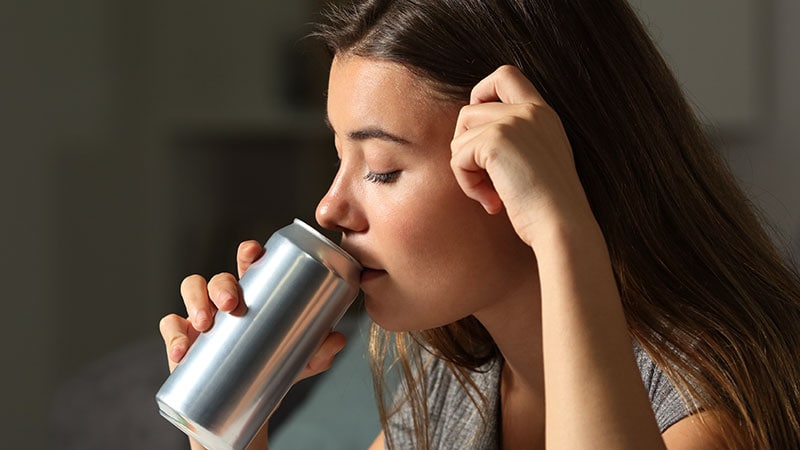[ad_1]
New research suggests the zero alcohol products (ZAP) trend has reached teens. But whether these beverages drive healthier behaviors, act as a gateway to alcohol use, or both, is unknown.
In a study published in Appetite, researchers found over one third of teenagers had tried a ZAP, about half of whom had been given the drink by a parent or caregiver. Participants who reported consuming alcohol were about twice as likely to have had a ZAP, and those who’d had a ZAP were twice as likely to have consumed alcohol.
“It’s a chicken and egg scenario,” said Leon Booth, PhD, a fellow at The George Institute for Global Health in Barangaroo, Australia, and lead author of the new study. “There’s an association, we just don’t know which direction it goes in.”
Sales of ZAPs are growing. The nonalcoholic beverage industry earned $510 million in revenue in the United States between 2022 and 2023, an increase of 31% from the same period the year prior, according to NielsenIQ, a global marketing research firm.
The new study analyzed data from more than 600 15-17–year-olds in Australia who filled out surveys on use of alcohol products and ZAPs. Fifty teens took part in online focus groups. Gender representation was about equal across both groups.
Around half of those surveyed said ZAPs could help them fit in around other teens who were drinking alcohol.
Study participants were familiar with ZAPs and branding, with four out of five survey respondents saying they remembered seeing the drinks for sale. Almost one in three said they would buy the products.
“The data suggests that these products are definitely catching the eye of young people,” Booth said.
Lisa Durette, MD, an associate professor of child and adolescent psychiatry at the Kirk Kerkorian School of Medicine at the University of Nevada, Las Vegas, said most teens drink in a social setting and “having greater exposure to fashionable alternatives to alcohol might drive more healthy behavior.”
But some focus group participants said they thought the beverages could act as a gateway to alcohol use.
Booth said that normalizing the taste, experience, and habit of drinking could lead teens to an interest in trying the alcoholic version of beverages. A 2018 study from Japan found that teens who had tried ZAPs showed a greater interest in drinking alcohol.
Familiarizing teens with the act of drinking “can spark curiosity, such as regarding intoxication effects, and make the transition to consuming alcoholic beverages feel natural, especially in cultures where alcohol is a significant part of socialization and adulthood,” said Tony Issac, MD, an addiction psychiatrist at Raritan Bay Medical Center in Perth Amboy, New Jersey.
More than half of teens surveyed who had tried ZAPs said they were given them by a parent, and about the same percentage drank them at home.
Research has shown supervised alcohol use, which often reflects a caregiver’s more relaxed attitudes about alcohol, can lead to more frequent drinking and riskier behaviors among youth, said Tim Grisby, PhD, a substance-use prevention researcher and assistant professor in the Department of Environmental and Occupational Health at the University of Nevada, Las Vegas.
“If parents are okay with young people drinking zero-alcohol products at home, this could open the doorway to supervised drinking of alcohol products later on,” Grisby said.
The study was funded by Cancer Council Western Australia. The authors reported no disclosure.
Brittany Vargas is a journalist covering medicine, mental health, and wellness.
[ad_2]
Source link : https://www.medscape.com/viewarticle/teen-use-zero-alcohol-drinks-worries-experts-2025a100014c?src=rss
Author :
Publish date : 2025-01-17 05:57:09
Copyright for syndicated content belongs to the linked Source.
